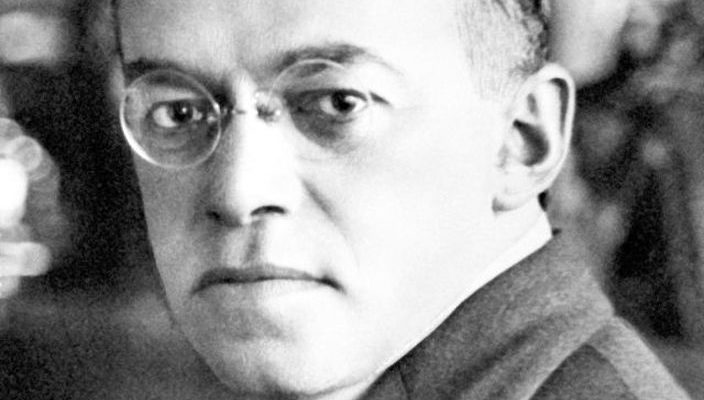Would Zionist leader Vladimir “Ze’ev” Jabotinsky have rejected the Nation-State? Some to know.
By Yisrael Medad, JNS.org
First it was Brenda Katten appearing in a column in The Jerusalem Post on Aug. 10 and then Asher Kozma, former head of Betar Australia, on Sept. 21 in that same paper. They both are quite sure what Ze’ev Jabotinsky would think of the recently legislated “Israel as the Nation-State of the Jewish People Law.”
To Ms. Katten’s “Shooting ourselves in the foot,” I point out that Jabotinsky would surely appreciate becoming a centrist icon for contemporary Israel and even those left-of-center. In fact, Jabotinsky is the favorite weapon of choice of those who dislike Benjamin Netanyahu. I would be quite wary though of non-Revisionists cherry-picking his ideology as Ms. Katten does.
For example, would Ms. Katten, former chairman of the U.K. Zionist Federation and WIZO chairperson, approve of his territorial aims for the Jewish national home (“both banks of the Jordan”) or his assertive defense posture (overall commander of the Irgun when it engaged in the breaking of self-restraint during 1937-1939)? Is she really that much of an activist? But to her point, quite concisely, it need be noted that Jabotinsky’s approach to the definition of the Jewish national idea as well as its preservation is more complicated than what Ms. Katten presents. While he was a liberal in the classic sense, defending the position of a minority, he was not given to demeaning or lessening the sense of the Jewish national idea, especially when it was threatened.
Mr. (“Jabotinsky would be ashamed of the Nation-State Law”) Kozma is much more acquainted with Jabotinsky’s thought it appears and extensively quotes from his writings. He relies on Jabotinsky’s 1940 “Arab Angle–Undramatized,” a chapter in his last book that, however, contains this line of caution: “the writer is not prepared to defend it in all its aspects.” To be oversure of what Jabotinsky would say or do today based on his opinion then is thus one of presumption. While it was the sociologist DaShanne Stokes who wrote that “privilege is presuming to speak for others you know nothing about,” I would suggest there is danger in writing about someone you know a little about.
For example, even though Kozma notes that Jabotinsky is writing about an “ideal state” which I would suggest is one that exists in a time after the Arabs have made peace with Israel and fully recognized Jewish national identity to historic Palestine which is the Jewish Eretz-Yisrael. Moreover, he suggests that we should “sympathize” with members of Israel’s minority communities who “feel disenfranchised or disempowered.” He further presumes that it is probable that if offered the position of “vice premiership” of the Jewish state in today’s circumstances, a member of the minority would turn that offer down.
In other words, the very act of Israel proving that it wishes to coexist with non-Jews and accept them fully into Israel’s body politic, Kozma conceives as a hollow reality. That, I would point out, is nigh contradictory.
Careful presuming Jabotinsky’s response
But to return to reality. Jabotinsky was quite staunch in his view that England could be persuaded to support Zionism even after its Peel Commission partition plan of 1937. He altered his mindset in 1938 and charged the members of the Irgun to strike at the Arab rioters and in 1939 agreed to overthrow British mandatory rule by invasion. In a change of circumstances, principles Jabotinsky upheld for decades were rejected.
In today’s reality of the actions and philosophy of the Arab Members of Knesset in supporting the PLO ideology of 1964, the demand for separate ethnic autonomy of Arabs, the furtherance of BDS and anti-Israel promotion, participation of Israeli Arabs in terror attacks, the self-identification as “Palestinians” and much more, I think that we need to be careful in presuming that Jabotinsky would not make a pronouncement such as “I am suspending my plan for minority rights in Israel as outlined in my article until certain conditions are fulfilled.”
Another of Kozma’s presumptions is that Jabotinsky “subscribed to the liberal notion of separation between religion and state, or even more broadly, nation and state.” I would not agree.
True, Jabotinsky saw religion as a private matter. Nevertheless, as it happened, in his speech at the 1935 founding conference of the New Zionist Organization, he specifically rejected that “separation” at the state level and states: “But it is a supreme matter for the ‘state’ [as opposed to the individual], and for us as a nation that the eternal flame [of religion] not be extinguished in the vortex of innumerable influences that drag our youth down, even poisoning them, and that God’s spirit be preserved for it is the purest of them all.”
That conference adopted the declarative resolution that “the goal of Zionism is the redemption of Israel in its land, the reconstitution of its state and the infusion of the sacred elements of its Torah.” That does not seem the way Kozma portrayed Jabotinsky.
Jabotinsky, in his 1904 “Letter on Autonomism” expressed himself quite vehemently against mixed-marriages that would lead to assimilation and demanded full quality Jewish education, foremost Hebrew, as the sure method of preserving the Hebrew national character and psyche. Would that be considered a liberal approach today?
Kozma posits that it is not “out of the ordinary for politics to get in the way of ideology.” I could not agree more. It is also quite true not only that an ideology can get in the way of politics but also in the way of presenting someone else’s political and ideological philosophy and practical program.
Yisrael Medad, an American-born Israeli journalist, is also the deputy editor of the forthcoming critical edition of Jabotinsky’s writings in English.





